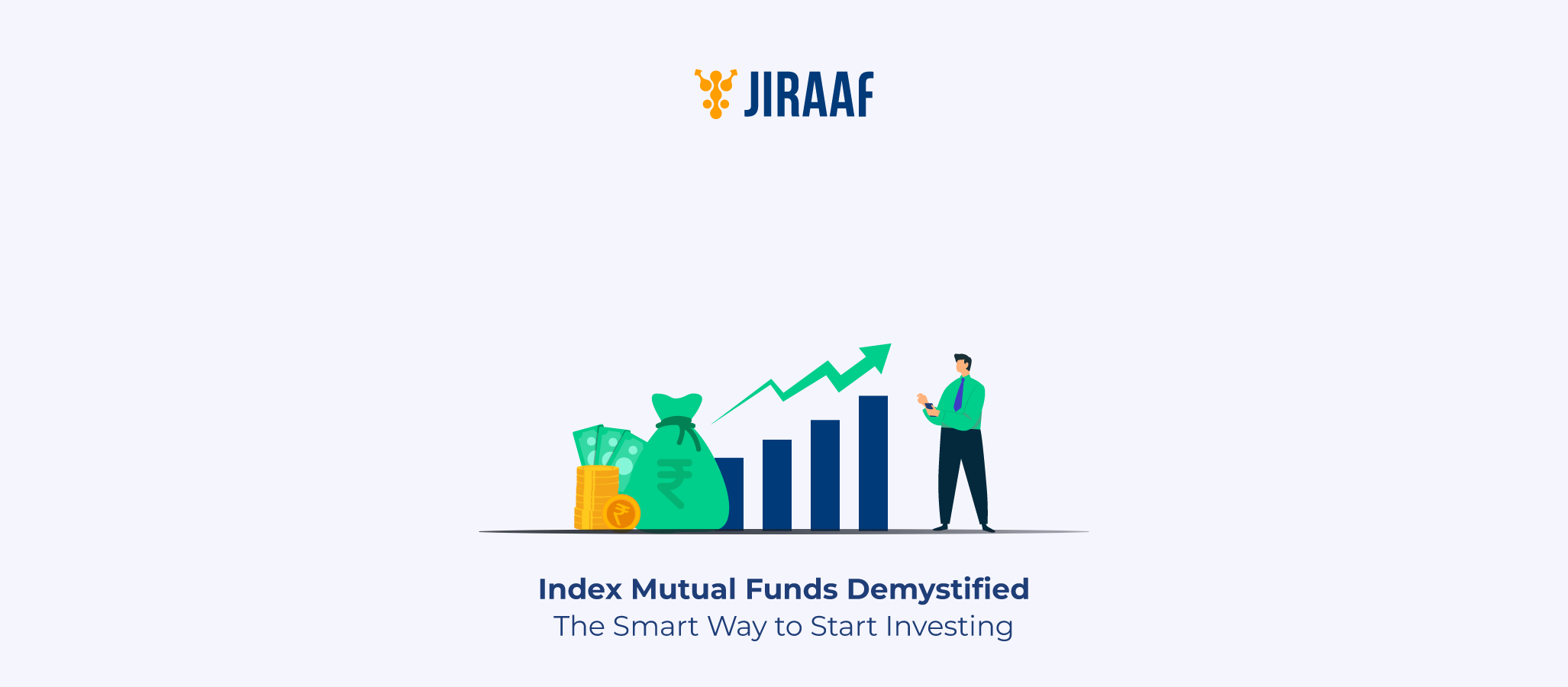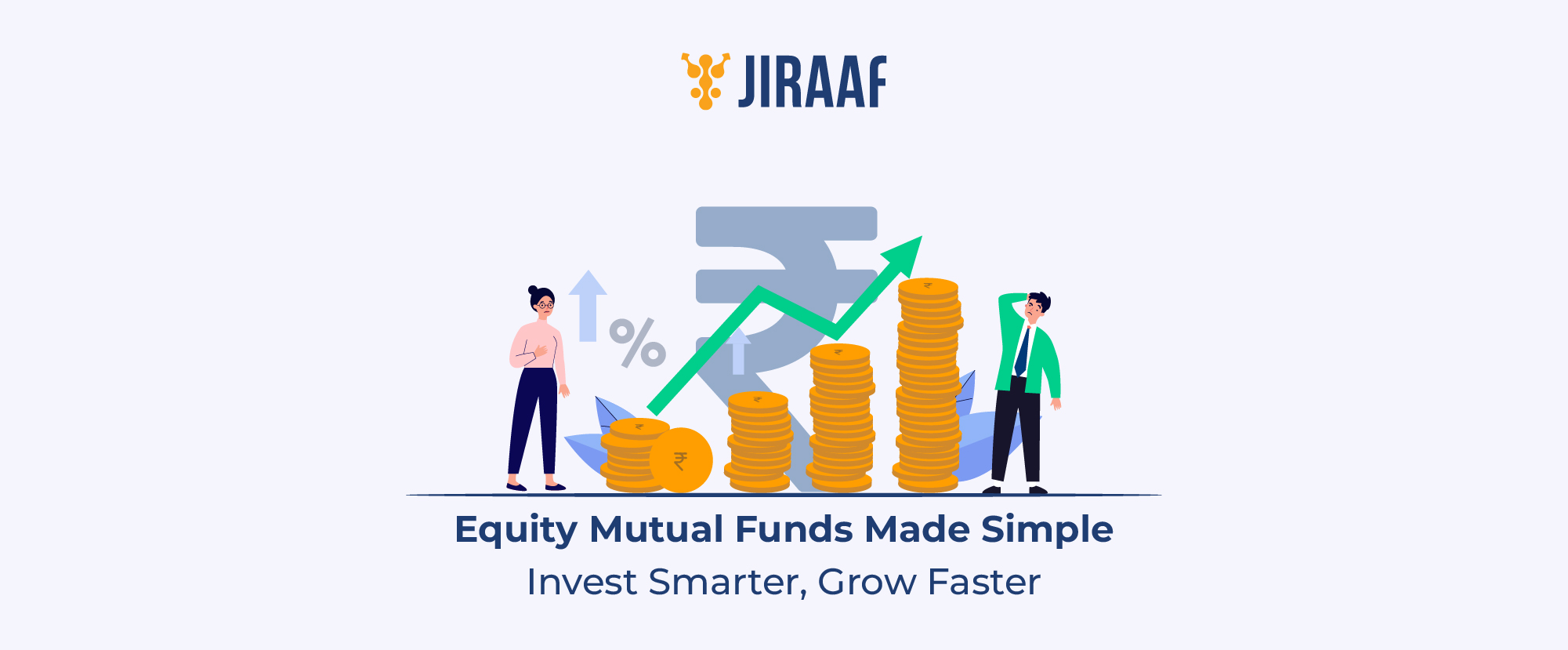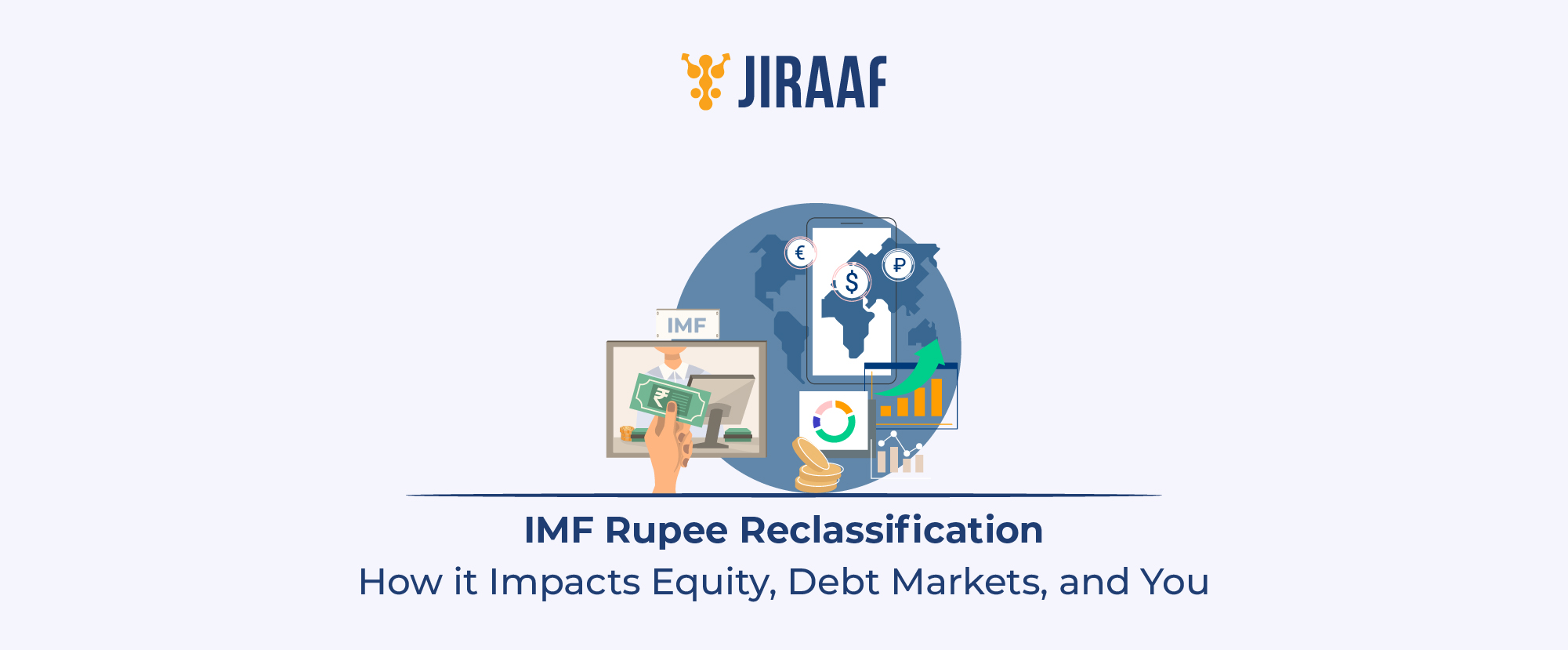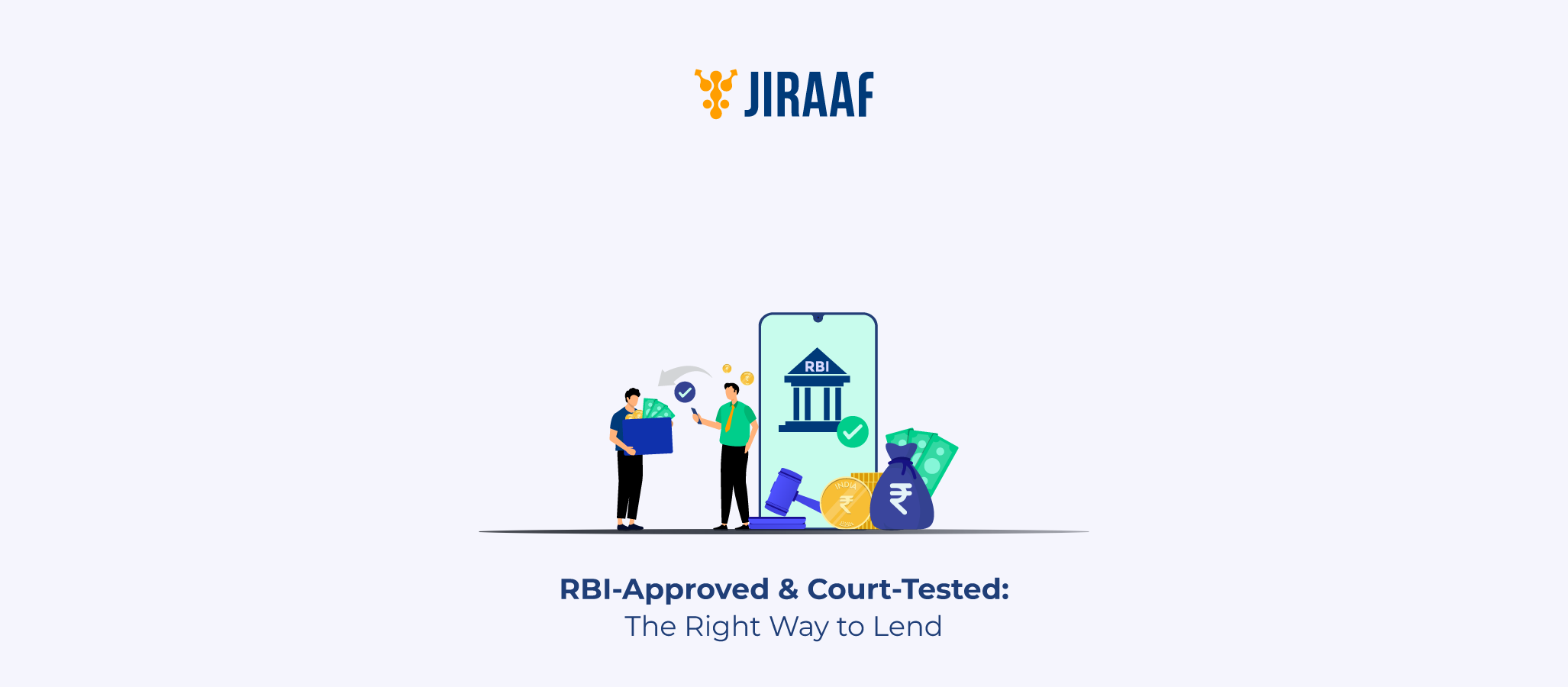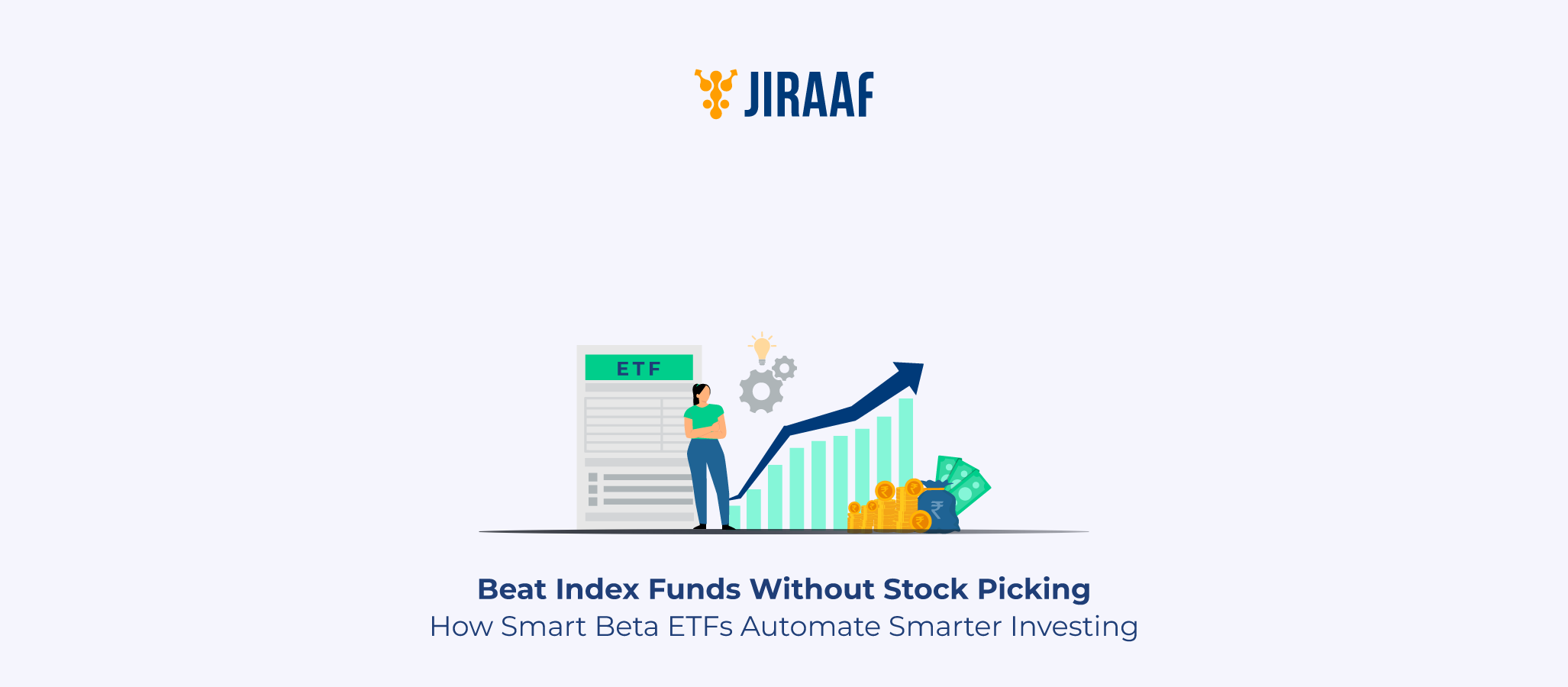An index mutual fund is a type of passively managed mutual fund that mimics a market index, such as NIFTY or SENSEX, producing returns that are consistent with the index’s performance. It is the simplest and most affordable way for you to invest in the stock market.
Diversification is an essential component of an effective investment strategy. You would aim to diversify your funds across many asset classes such as equities, debt, bonds, real estate, and gold. Diversifying your equity portfolio by investing in stocks from various industries and market capitalizations is a well-known risk-reduction strategy in equity investing. This is where index mutual funds come in.
What is an Index Mutual Fund?
As the name suggests, an index mutual fund is one that invests in equities that reflect a stock market index, such as the NSE Nifty, BSE Sensex, and so on. These are passively managed funds, which means that the fund manager buys the same assets as the underlying index in the same amount, without changing the portfolio composition. These funds aim to provide returns that are comparable to the index they monitor. Index mutual funds are generally more tax-efficient than actively managed mutual funds, primarily because they involve minimal buying and selling of underlying securities. This lower portfolio turnover results in fewer taxable capital gains distributions. Additionally, index funds typically have lower expense ratios, making them a more cost-effective investment option for long-term investors.
How Do Index Funds Work?
While an actively managed mutual fund strives to outperform its underlying benchmark, an index fund, which is passively managed, seeks to replicate the returns provided by the underlying index.
If you are interested in the equities of a certain sector or the entire market, you can locate indexes that try to attain results similar to the benchmark index you want to keep track of. The broader index funds can reduce tracking errors, which are the differences between the fund’s actual performance and the target benchmark.
Assume an index mutual fund is tracking the BSE Sensex Index – its portfolio will mirror the index by holding the same 30 large-cap stocks in similar proportions. Likewise, a fund tracking a broader benchmark like the BSE 500 Index will invest in approximately 500 stocks, offering exposure across large-cap, mid-cap, and small-cap companies from a wide range of sectors. Index funds aim to replicate the performance of their chosen benchmark by investing in all the securities included in the index, which may consist of equities, equity-related instruments, and in some cases, even bonds, depending on the index’s composition.
Passively Vs Actively Managed Mutual Funds: Key Differences
When you are evaluating your investment choices, the questions arise: What is easier to keep track of? What is less risky? What suits me better, considering my risk appetite, my funds on hand, and my expectations? Let’s break that down to help you look at that in a summarized table:
| Parameter | Passive Funds (Index Funds) | Active Funds |
| Management | Passively tracks a benchmark (For example, Nifty 50). | Actively managed by fund managers. |
| Expense Ratio | Low (0.05% – 0.5%). | Higher (0.8% – 2.5%) due to active management. |
| Performance | Matches standard returns; often outdoes active funds in the long-term. | Aims to beat the market; success depends on the fund manager’s skills. |
| Simplicity | Simpler selection (compare tracking error & expense ratio). | Involves research (AUM, past returns, fund manager track record) |
| Risk | Depends on the benchmark (For example, Nifty 50 has lower risk). | Varies by the strategy (large-cap = stable, small-cap = volatile). |
Top 5 Index Mutual Funds in India (According to AUM)
Here is a list of the top five index mutual funds by their AUM and expense ratios.
| Fund Name | AUM (Cr.) | Expense Ratio |
| UTI Nifty 50 Index Fund | 20,082.94 | 0.18% |
| HDFC Index Fund- Nifty 50 Plan | 18,412 | 0.36% |
| ICICI Prudential Nifty 50 Index Fund | 11,919 | 0.35% |
| SBI Nifty Index Fund | 8,679.18 | 0.48% |
| UTI Nifty200 Momentum 30 Index Fund | 8,333.77 | 0.42% |
Advantages of Investing in Index Funds
- Lower fees: Active funds typically have expense ratios of 0.8% – 2.5%, and passive funds have a lower ratio of around 0.05% – 0.5%. It also reduces long-term costs through passive management.
- Consistent performance: 79–88% of active mutual funds underperform benchmarks. Index funds often match market returns rather than gambling on stock selection.
- Simple and transparent: They often track known benchmarks like the Nifty 50 and the S&P 500, and there is no requirement to analyze the fund managers’ performance.
- Taxation and trading efficiency: Fewer trades imply lower capital gains and transaction expenses. This avoids the high churn experienced in active funds.
- Diversification: Holds all the index’s stocks, lowering the sector-specific risks.
- Ideal for long-term: Over the course of ten years or more, index funds outperform most active funds.
Index Fund Investment Strategy for Beginners
Do you want to start investing but find the stock selection overpowering or challenging? The best place to start is with index funds. Here’s how to make wise investments even if you have no prior experience.
- Start with the basics: Learn what index mutual funds are, how they operate, their historical performance, and who they are best suited for. It’s important to understand their cost structure, the diversification they offer, and the key advantage of being a hands-off investment that doesn’t require constant market tracking – making them ideal for long-term, passive investors.
- Picking the right index fund: Based on your investment preferences and risk appetite, you can choose between large-cap funds, which offer relative safety and stable returns; mid- and small-cap funds, which focus on growth and come with higher risk-reward potential; or global funds, which provide international exposure and help diversify your portfolio across geographies.
- Compare expense ratios: Target funds with an expense ratio of less than 0.5%. (For example, UTI Nifty 50 index fund expense ratio is 0.19%)
- Hold for long term (5+ years): Index mutual funds tend to grow better over time. For example, ₹10,000/month in Nifty 50 for 10 years ≈ 12–15% compound annual growth rate (CAGR).
- Dividend reinvestment: To optimize compounding, choose growth plans rather than dividend plans.
- Use SIPs: Rather than lumpsum investments, opt for systematic investment plans (SIPs) to benefit with no stress on market timing and the Rupee-cost averaging.
- Pair with other assets: Lastly, you can consider pairing index mutual funds with fixed deposits (FDs) or debt funds for stability, and gold or real estate investment trust (REITs) to hedge against inflation.
Should You Choose Index Mutual Funds Over Actively Managed Funds?
The choice between the two great mutual fund options should be made only after a thorough evaluation of several factors, like your risk tolerance, investment knowledge, and your overall financial goals. According to historical data sources, most actively managed mutual funds have difficulty outperforming index funds over the long run. Research shows that during a 10 to 15 year period, about 80% of funds that are actively managed lag their benchmark index.
Index funds can be the ideal choice if you’re searching for an easy, affordable method for growing your wealth without having to deal with the pain of following fund managers or market movements. These passively managed funds promise consistent, market-matching returns with low costs, mirroring market benchmarks such as the S&P 500 or Nifty 50. They avoid high expense ratios or erratic performance that strikes many actively managed funds because they don’t rely on stock-picking techniques.
You should finalize on index funds if you want a hands-off, minimal-cost investment option with stability and good market exposure.
You can pick active mutual funds if you are okay with higher costs and have full confidence in the fund managers’ ability to help you fight market volatility.
Conclusion
The bottom line is that index mutual funds are a popular investment option if you are looking for something passive, low-cost, and diverse that can help outdo higher-fee trading opportunities. They are designed in such a way that they can replicate financial market index performances and are perfect for retirement savings and other long-term reserves. Although index funds have benefits like long-term stable returns and reduced risk through diversification, they are quite vulnerable to market fluctuations and do not have the adaptability that comes with active management. Nevertheless, index funds are currently a key component in many investing portfolios due to their steady performance.
FAQs
What is the meaning of an index mutual fund?
An investment that matches a market index is called an index fund. In the same proportion as the index, it is a type of mutual fund or exchange-traded fund (ETF) that owns every share that makes up a specific index.
How do index funds differ from other mutual funds?
How the funds are allocated and managed is the main distinction between index funds and other mutual funds. Fund managers must pick the asset mix and investment percentage for actively managed mutual funds.
Are index mutual funds safe for beginners?
Yes, for beginners wishing to make investments in a variety of assets with low effort, consistent growth, and low fees, index funds are a useful tool. They provide instant diversification and remove the risk of stock-picking and follow well-known market indices. Their passive management and minimal fees lower expenses and human errors. Although they still face market volatility, risks are minimized by long-term investing (5+ years).
Why are index funds considered low-cost investments?
Compared to actively managed mutual funds, index funds offer a simpler, cleaner, and less active option. As a result, index funds are offered at a comparatively cheaper cost than active mutual funds since the expense of research for stock selection is reduced.
Discover fixed income investments with Jiraaf, a SEBI registered online bonds platform that educates and brings access to a wide array of bonds. Sign up today to explore diversified fixed income investment opportunities to support your goal-based wealth creation journey. Start investing!
